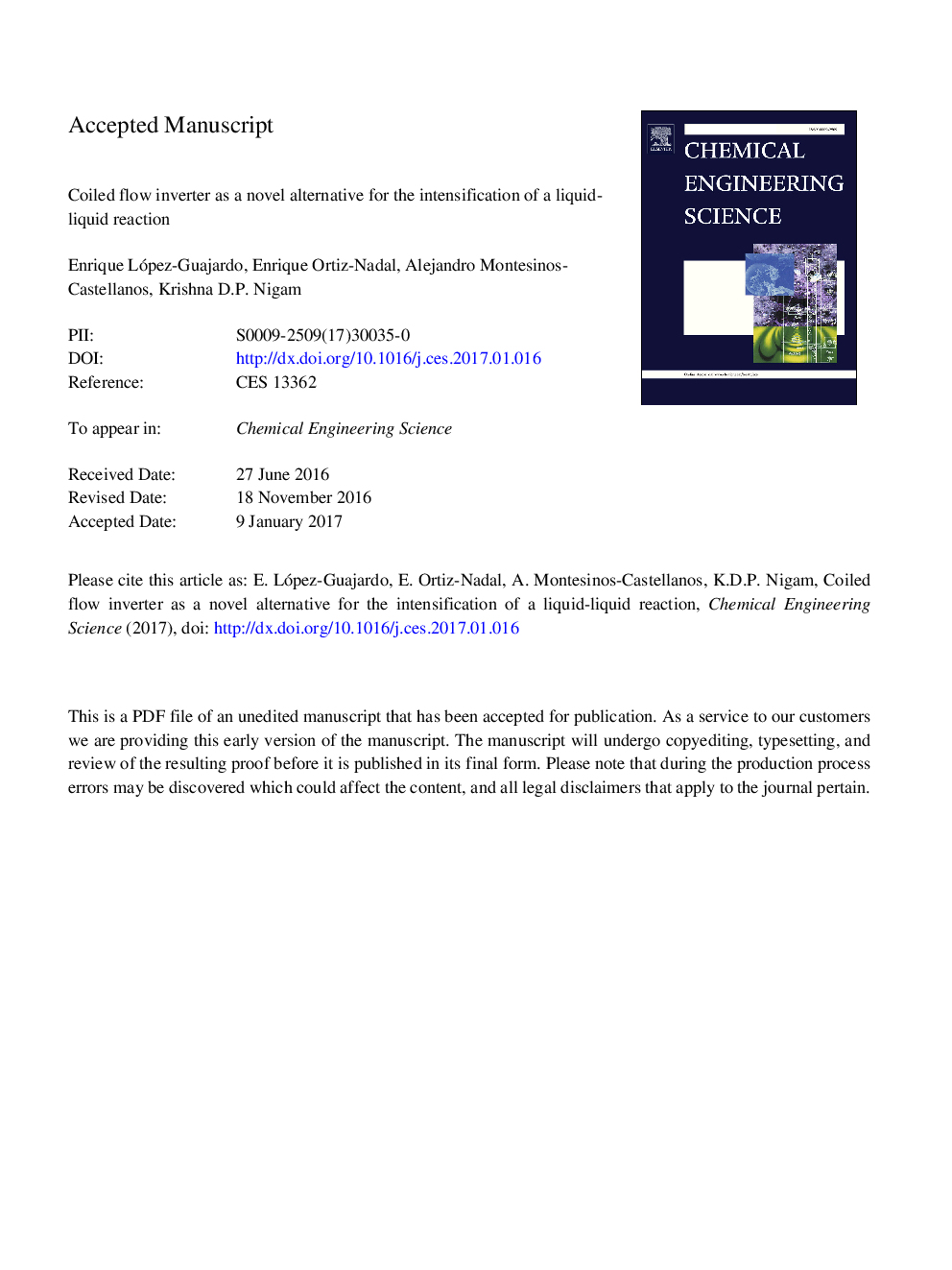| Article ID | Journal | Published Year | Pages | File Type |
|---|---|---|---|---|
| 4763885 | Chemical Engineering Science | 2017 | 34 Pages |
Abstract
This paper explores a novel alternative to conventional biodiesel production by taking advantage of the mixing, mass and heat transfer enhancement inherent in coiled flow inverters (CFIs) using the transesterification of fatty acids as a model reaction. The results show that the reaction can be carried out twelve times faster in a CFI than in a batch reactor, with a conventional oil to methanol molar ratio of 1:6 (100% excess methanol). The mixing enhancement in CFIs increases the mass transfer between the reacting phases, achieving conversions of up to 93% for 2 min residence time at 10 ml/min with seven 90° bends. The performance of CFIs was compared to that of simple helical and straight tube reactors under the same operational conditions. The conversion observed in the CFIs was up to 18% higher than the conversion obtained in the helical and straight tube reactors. However, all the reactors achieved similar oil conversions when a longer residence time (4 min) was allowed under the same flow rate conditions. Additional experiments with CFIs were carried out in order to explore lower oil:methanol molar ratios. The experimental results suggest that CFIs are capable of achieving conversions of up to 90% at 50% methanol molar excess (1:4.5 oil:methanol ratio) with a 4 min residence time, which contrasts with the 60 min required in batch reactors to achieve the same conversion. The results confirm that CFIs successfully intensify liquid-liquid reactions such as the transesterification of fatty acids when compared to a batch reactor.
Related Topics
Physical Sciences and Engineering
Chemical Engineering
Chemical Engineering (General)
Authors
Enrique López-Guajardo, Enrique Ortiz-Nadal, Alejandro Montesinos-Castellanos, Krishna D.P. Nigam,
